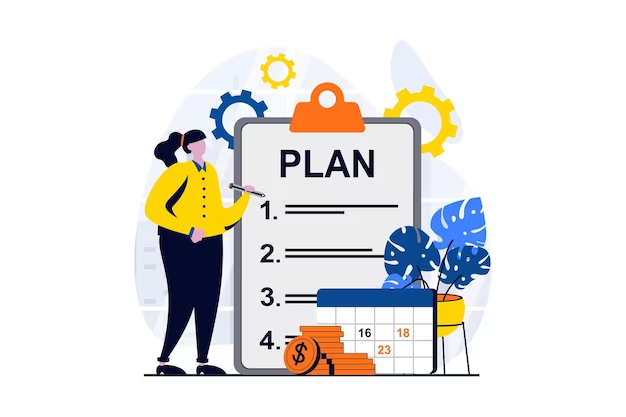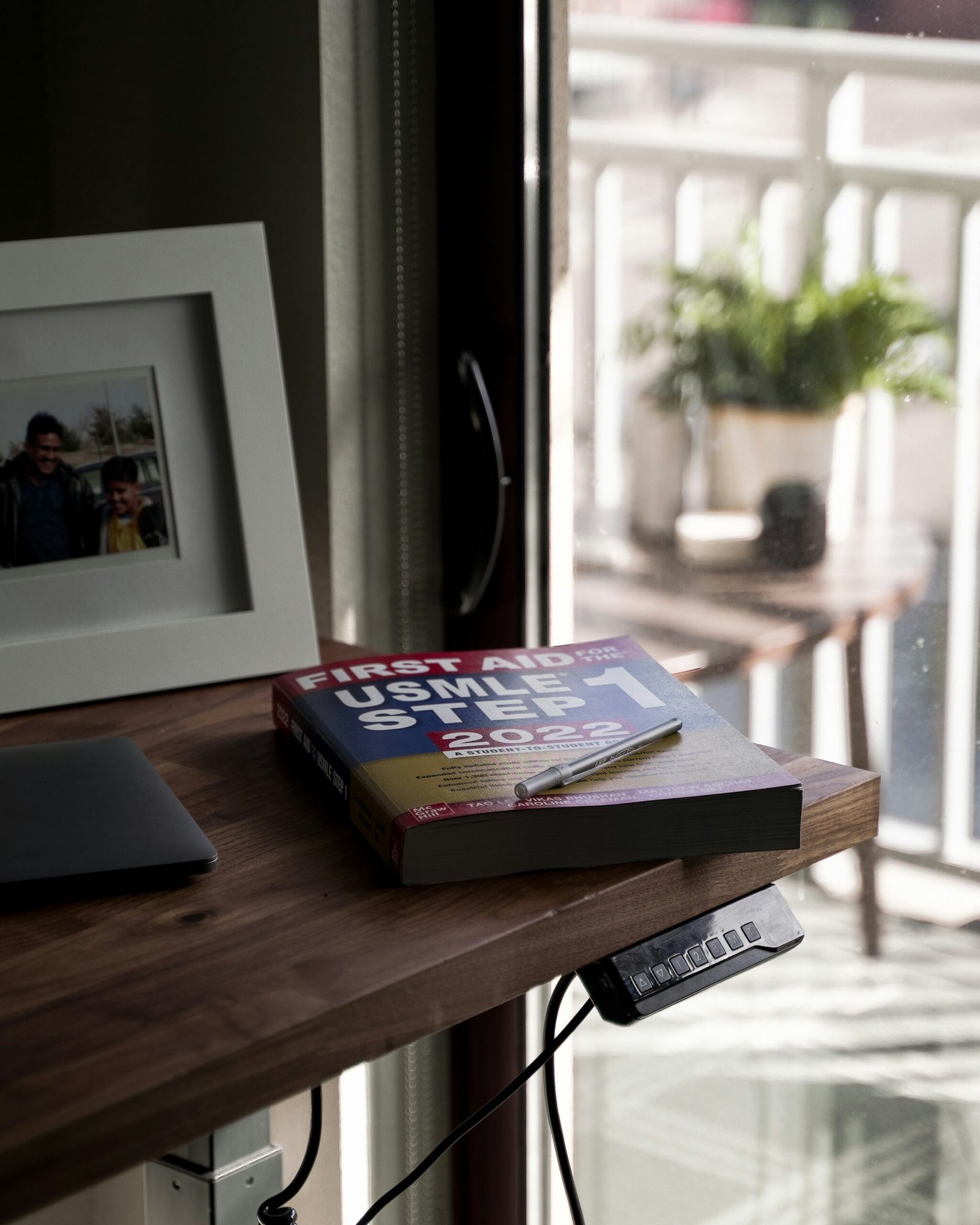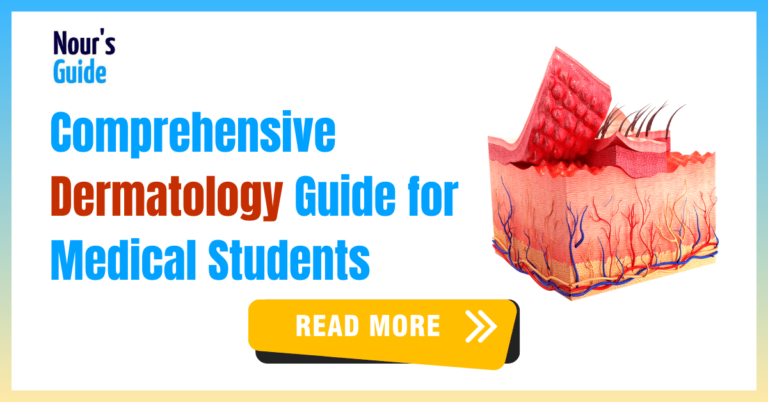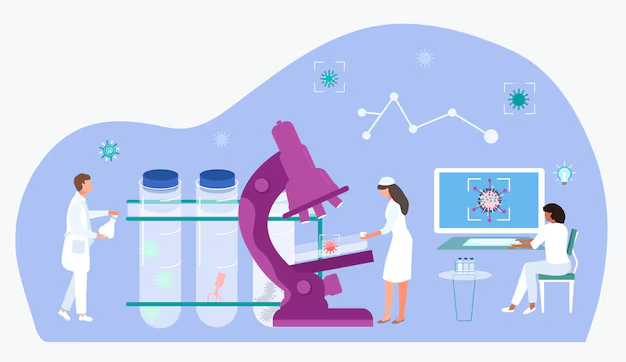USMLE Step 1: Experiences from Those Who’ve Been There18 min read
USMLE Step 1 Experiences
Welcome to our blog post on USMLE Step 1 experiences! In this article, we will delve into the significance of the USMLE Step 1 exam for medical students and explore the purpose of sharing real-life experiences. If you want to familiarize yourself with the USMLE pathway, read our guide on how to become a doctor in the U.S.
Table of Contents
Introduction
Real-life experiences shared by students who have already taken the USMLE Step 1 exam can be invaluable for those who are preparing to tackle this challenging milestone. These experiences provide insights, tips, and strategies that can help future test-takers navigate the exam with confidence and success.
Pre-Exam Preparation Experiences
Preparing for the USMLE Step 1 exam requires careful planning and organization. Here are some common pre-exam preparation experiences shared by students:
Developing a Study Plan and Timeline
One of the first steps in preparing for the USMLE Step 1 exam is creating a study plan and timeline. This involves setting realistic goals, breaking down the study material into manageable chunks, and allocating time for revision and practice questions. Many students find it helpful to use online study resources and study guides to structure their study plan effectively.
For a comprehensive biochemistry study guide for medical students, check out this resource.
Choosing and Utilizing Study Resources
There is a vast array of study resources available for the USMLE Step 1 exam, including textbooks, online question banks, and review courses. Students often spend a significant amount of time researching and selecting the most suitable resources for their learning style. It is essential to choose resources that cover the exam content comprehensively and align with personal preferences.
For a list of the best USMLE tutors, visit this comprehensive list.
Balancing Study, Self-Care, and Personal Life
Preparing for the USMLE Step 1 exam can be mentally and emotionally demanding. It is crucial to strike a balance between studying, self-care, and personal life. Many students emphasize the importance of taking breaks, engaging in physical activity, and maintaining social connections to prevent burnout and maintain overall well-being.
For tips on maintaining work-life balance during clinical rotations, check out Our blog on the best shoes for medical students.
Dealing with Stress and Anxiety
The USMLE Step 1 exam can induce significant stress and anxiety in students. It is essential to develop coping mechanisms and strategies to manage these emotions effectively. Students often find solace in meditation, deep breathing exercises, and seeking support from friends, family, or mental health professionals.

Mohammad Abdul Baqi Experience:
Hello 👋🏻 My name is Mohammad Abdul Baqi, a graduate from Hama University. I want to share my successful experience in Step 1 after it became pass/fail.
Key Takeaways:
- Everything I mention is my personal experience and may not be accurate. My advice is not to copy others’ experiences and apply them to yourself because your experience will be unique to your own circumstances. Take what suits you from any experience.
The Journey in General:
- The most important thing to know when starting Step is to consider the psychological factor. The Step journey is long and requires breaks. Live your life and make space for entertainment, do not blame yourself if you slack off, you won’t be able to study all day long. No matter how tiring the journey gets, you must be confident in yourself and in your experience. When you see your results, you will know that you are a great person.
- The most tiring thing at the beginning of the journey is doubting whether you are on the right path, especially when you are going against the flow. When you see the majority studying German while those studying Step are few, in the end, no matter what your decision is, stick to it till the end because there is no right or wrong path.
- It’s true that the exam outcome is pass or fail, but it will never change your study journey. The most important thing is that it will reduce the pressure of the score and you may need less preparation time.
- I wished someone had advised me earlier about the struggles on the way, I made many mistakes until I managed to reach.
Preparation Period:
It was approximately a year, with many interruptions for personal reasons in addition to preparing for the national exam.
I started the actual studying at the beginning of the sixth year and applied after the national exam.
Sources of study:
- UWorld
- BnB: one of the best videos you can watch.
- Sketchy: for micro + pharma.
- Amboss: I used the bank after finishing UWorld, even though its questions are harder than the real exam and a bit distant, but it was a way to understand and review the information more than evaluating myself. In my opinion, solving new questions is more useful than repeating UWorld again, in addition to the bank of information that delivers the information to you instead of searching online.
- First Aid: Initially, I would transfer all information to it from UWorld or BnB, but unfortunately, it didn’t help me later on because it became difficult to revise as it grew in size. Also, the way I read and memorize the information was very boring (I used to transfer additions to it electronically and never used paper because it would take a long time), that’s why I used solving questions for revision.
- Pixorize: The savior especially for chemistry, and I watched several videos on diseases that I would forget.
- Anki: Honestly, I couldn’t use it as the basis of my study even though it may suit some people and it is definitely beneficial. I only used it for reviewing micro + pharma because they present sketch images.
- Pathoma: BnB covers this.
- Dirty Medicine + Randy Neil: YouTube channels that saved me in the last period of preparation.
- See Our Blog on The best Step 1 Resources
Mistakes I Made:
- The biggest mistake I made in my first round of studying was to study just to finish without reviewing anything. After the first round, I discovered that I had forgotten a lot, and this was what delayed my preparation. So don’t just say I will start reviewing after finishing, always make time in your day for review in a way that suits you, it’s not about finishing, it’s about how.
- When I took the self-assessment and got a low score, I would go back and review everything without focusing on my weaknesses. So, I wasted time. When you take an assessment test, don’t just think about the score, think about where you went wrong and fix it.
- In the early stages of my study, I tried to leave everything in life and anything that could entertain me under the pretext of studying for the exam, but I became more depressed and didn’t progress in my study. I would say to dedicate time for yourself from your day.
Omar 8 Month Preparation Experience:
My name is Omar Al-Nasr. I want to share my experience in preparing for and taking the Step 1 exam.
Application and Preparation:
- Application date: 2/7/2022
- Preparation period: 8 months
- Started studying in June 2021
- My initial plan was to prepare for the German exam and I reached the B2 level.
- During the 6th semester, I studied Step 1 and 2 for academic purposes only.
- The beginning was slow, but month after month, the study hours and quality increased.
- Study plan:
- Started with Board and Beyond videos, taking 3 days to a week per section.
- Then UWorld for the section, and sometimes finished with the First Aid section on the same day.
- In month 11, I finished the Board and UWorld videos completely.
- From month 11 to month 12, I studied First Aid, which turned out to be unhelpful and a waste of time.
- Assessment and Adjustments:
The first assessment was NBME 20 on 1/12/2021, with a pass but low score.
I started UWorld Random after the holiday and did an assessment every week, the score improved but not significantly.
After New Year, I noticed the assessments were stagnant due to lack of retention, so I decided to use Anki in the last month, focusing on reviewing 1000 cards per day.
On 25/1/2022, I finished Anki and took the most important UWSA2 assessment, with a good result.
I left the last ten days to review First Aid and did Amboss assessments. The night before the exam, I reviewed the Free120, which was very important.
Exam Day Experience:
The travel was by road a day before, and I stayed at Beverly Hotel for one night.
The exam was initially comfortable and familiar, with each block slightly harder but still acceptable. I wished it was provided with a score.
The fifth block was the hardest, but the questions that followed were easier. I didn’t feel much time pressure, although the idea of 8 hours was intimidating.
Advice:
During the exam, I experienced strong palpitations and was afraid of failing because I couldn’t concentrate for a whole hour due to Red Bull. I don’t recommend anyone to drink caffeine unless they really need it due to sleep deprivation.
Book the exam as early as possible, especially if you plan to apply in Lebanon.
Practicing question-solving techniques is as important as studying the information, or even more important. Time management is crucial.
The study didn’t differ between pass/fail and scored exams. The only advantage is the big safety margin.
A sufficient study period is between 7 months and a year based on previous information and focus on studying.
Walid has 18 months of preparation experience:
My name is Walid Haddad
Application date 14/2/2022
- The total preparation period was a year and a half.
- My exam date was supposed to be on 24/1, but before that, I had to cancel and reinstate my eligibility since the circumstances were beyond my control, and I had to apply for a pass/fail session.
- My preparation period consisted of two parts:
- The first part was primarily focused on breaking the medical language barrier and understanding the basic concepts. It was a period filled with errors and was not guided at all.
- The second part started with the second semester of the fifth year. It was more directed, continuous, and importantly, it didn’t have any interruptions. I started with 6 hours of study per day and ended with 10-12 hours in the last two months.
Study resources:
- Pathoma
- Kaplan books and videos
Later on, I relied more on:
- UWORLD
- BnB
- First Aid
- Sketchy for both micro and pharma
- pixorize for immunology and biochemistry
- Randy Neil for communication skills and biostatistics
- dirty medicine as a last resort
Regarding Anki, it was crucial in my last phase, where I reviewed everything from it. The cards I created for micro, pharma, and bio were the backbone of my Anki deck.
As for question banks, there were some things I realized late:
-UWORLD is not an assessment but a study source like any other. Although its questions are similar to the exam style, the answers are different to make you differentiate and strengthen your knowledge.
-NBMEs must be done to know where you stand.
Lastly, a combination of both is essential: AMBOSS Self_Assessment.
In the month before the exam, I personally benefited a lot from HyGuru videos. They were very helpful because they focused on points found in NBMEs.
Personal tips from my exhausting experience:
- Don’t schedule your exam in winter.
- Don’t set your exam date at the end of your eligibility period because you never know what might happen, and you may end up having to cancel or reschedule.
- Always make sure to check the COVID policies of the center before traveling.
Cancellation note:
I thought I could cancel without a fee, but the challenging part was that I had to call the number on my permit and pay the fee over the phone only. I then had to wait for them to send an email with the fee confirmation. The fee was only $50, but honestly, the process was quite exhausting.
I had to cancel my exam without rescheduling because the center in Oman changed its policy regarding applicants to have two doses of the vaccine instead of a negative PCR test. I received the email a day before my trip to Jordan and five days before my exam date. I was not sure if I would be allowed to proceed and thought it was better to cancel and take a booster dose in Jordan. Then, I rebooked the exam in Oman, but by then, it became pass/fail.
Self-Assessments:
- NBME 24: 234
- NBME 28: 244
- NBME 29: 250
- UWSA 1: 260
- UWSA 2: 256
- Free 120: 92%
- Amboss SA: 255
- Real deal: Pass
I used NBMEs as practice and then switched to solving an NBME Self-Assessment every Friday in the last period.
I recommend that you read our blog about the top High-Yield Topics for Step 1.
On the day before the exam, try to wake up early and revise quickly. A reliable method is to tire yourself out and sleep early. On the exam day, take a break after each block with a sip of Red Bull and a protein bar, then continue with the next block.

Exam Day Experiences
On the day of the USMLE Step 1 exam, students often experience a mix of excitement and nervousness. Here are some common exam-day experiences shared by students:
Logistics and Administrative Procedures
Arriving at the test center on time and going through the administrative procedures can be a nerve-wracking experience. Familiarizing oneself with the test center location and reviewing the exam day instructions provided by the testing authorities can help alleviate some of the stress on the day of the exam.
Strategies for Managing Time and Mental Focus
Managing time effectively during the exam is crucial to answer all the questions within the allocated time. Students often employ strategies such as flagging challenging questions for later review, utilizing the tutorial time wisely, and maintaining mental focus throughout the exam.
For free anatomy flashcards for the USMLE Step 1 exam, check out this resource.
Navigating the Exam Format and Question Types
The USMLE Step 1 exam consists of multiple-choice questions and requires students to apply their knowledge to clinical scenarios. Familiarizing oneself with the exam format and practicing with sample questions can help students feel more confident and comfortable on the day of the exam.
Overcoming Challenges During the Exam
During the exam, students may encounter challenging questions or moments of self-doubt. It is essential to stay calm, trust in one’s preparation, and utilize problem-solving skills to overcome these challenges. Students often find it helpful to take short breaks if needed to regroup and refocus.
Post-Exam Reflections
After completing the USMLE Step 1 exam, students often go through a range of emotions and reflections. Here are some common post-exam experiences shared by students:
Emotional Reactions and Coping Mechanisms
Receiving the results of the USMLE Step 1 exam can evoke various emotions, including relief, excitement, disappointment, or anxiety. Students employ different coping mechanisms such as talking to friends or seeking professional support to process these emotions effectively.
Uncertainty and Waiting for the Results
Waiting for the results of the USMLE Step 1 exam can be a period of uncertainty and anxiety. Students often find it helpful to engage in activities that distract them from constantly thinking about the results, such as pursuing hobbies, volunteering, or focusing on other academic pursuits.
Strategies for Dealing with Disappointment or Unexpected Results
Not all students achieve their desired scores on the USMLE Step 1 exam. In such cases, it is essential to develop strategies for dealing with disappointment and formulating a plan for improvement. Seeking guidance from mentors, reviewing study strategies, and considering additional resources or tutoring can help students bounce back and perform better in subsequent attempts.
Varying Experiences Across Medical Students
Experiences with the USMLE Step 1 exam can vary significantly among medical students. Here are some factors that contribute to these variations:
Diverse Study Approaches and Preparation Methods
Students employ different study approaches and methods based on their learning style, preferences, and past academic experiences. Some students prefer self-study, while others benefit from group study sessions or review courses. It is important to find a study method that works best for individual needs.
Differences in Background, Resources, and Support Systems
Students come from diverse backgrounds and have access to varying resources and support systems. Factors such as financial constraints, access to study materials, and availability of mentorship can influence the overall experience and preparation for the USMLE Step 1 exam.
Unique Challenges Faced by International Medical Graduates
International medical graduates (IMGs) often face additional challenges when preparing for the USMLE Step 1 exam. These challenges may include language barriers, cultural differences, and unfamiliarity with the U.S. medical education system. However, with proper guidance and support, IMGs can successfully navigate these challenges and excel in the exam.
Advice and Encouragement from Successful Examinees
Successful examinees who have conquered the USMLE Step 1 exam often have valuable advice and encouragement to offer. Here are some common themes:
Overcoming Self-Doubt and Maintaining Motivation
Preparing for the USMLE Step 1 exam can be a long and arduous journey. It is important to overcome self-doubt and maintain motivation throughout the process. Many successful examinees emphasize the importance of setting realistic goals, celebrating small victories, and staying focused on the ultimate goal of becoming a competent physician.
Effective Time Management and Study Techniques
Time management is crucial when preparing for the USMLE Step 1 exam. Successful examinees often share their strategies for efficient study sessions, utilizing breaks effectively, and staying organized. They also emphasize the importance of active learning techniques such as practicing with sample questions and teaching concepts to others.
Strategies for Managing Stress and Maintaining Well-being
Stress management and self-care are essential components of a successful USMLE Step 1 exam preparation journey. Successful examinees often advocate for regular exercise, healthy eating, sufficient sleep, and engaging in activities that bring joy and relaxation. They also stress the importance of seeking support from peers, mentors, or mental health professionals when needed.
Conclusion
In conclusion, the USMLE Step 1 exam is a significant milestone for medical students. By sharing real-life experiences, we hope to provide valuable insights and guidance for future test-takers. From pre-exam preparation experiences to exam day experiences, post-exam reflections, and varying experiences across medical students, each step of the journey is unique and challenging. However, with proper planning, effective study strategies, and a supportive network, success is within reach. We encourage all future test-takers to stay motivated, take care of their well-being, and remember that this exam is just one step in their journey towards becoming compassionate and competent physicians.
For more resources related to USMLE Step 1 preparation and medical education, explore the following links:
- Creating an Effective Study Schedule For Step 1 Exam
- Best Anatomy Resources for Medical Students
- Anatomy Work Sheets for Medical Students in PDF
- Cross-Sectional Anatomy Resources
- Anatomy Study Guide for Medical Students
- A Simple Guide to Applying for Electives for IMGs
- USCE for IMGs: A Comprehensive 2024 Guide
- How to Make Money Online as a Medical Student
We wish all future test-takers the best of luck on their USMLE Step 1 journey!
Frequently Asked Questions
How did students prepare mentally and emotionally for the USMLE Step 1 exam?
Many students found it helpful to practice stress management techniques, such as meditation, exercise, and mindfulness. Seeking support from family, friends, and mental health professionals was also crucial in managing anxiety and burnout during the preparation period.
What were some common challenges experienced by medical students during their Step 1 preparation?
Students often faced challenges balancing their studies with other commitments, such as clinicals, extracurricular activities, and personal responsibilities. Finding the right study-life balance and managing time effectively were common hurdles.
How did students who performed well on the USMLE Step 1 approach their preparation?
Successful students often followed a structured study plan, utilized a variety of high-yield resources, and regularly assessed their progress through practice questions and self-assessments. They also emphasized the importance of understanding concepts rather than just memorizing facts.
What strategies did students employ to overcome disappointment or unexpected results on the USMLE Step 1 exam?
Students who faced setbacks reported using various coping mechanisms, such as taking time to grieve the outcome, seeking support from mentors and loved ones, and developing a plan to address their weaknesses and retake the exam.
How did the USMLE Step 1 experience differ for international medical graduates compared to their US-trained counterparts?
International medical graduates often faced additional challenges, such as navigating cultural differences, adapting to the exam format, and overcoming language barriers. They emphasized the importance of seeking out resources and support tailored to their unique needs.
What advice would successful USMLE Step 1 test-takers give to future examinees?
Common advice included starting preparation early, staying organized and disciplined, prioritizing self-care and work-life balance, and not being afraid to seek help when needed. Many also stressed the importance of understanding concepts rather than just memorizing.
How did medical students’ experiences with the USMLE Step 1 exam impact their future career plans or specialty choices?
For some students, their USMLE Step 1 experience influenced their decision-making process for residency applications and future career paths. Those who struggled with the exam may have reconsidered certain specialties, while high-scorers had more flexibility in their options.
What resources or support systems did students find most helpful during their USMLE Step 1 preparation journey?
In addition to traditional study resources, many students found peer support groups, faculty mentors, and wellness programs to be invaluable in navigating the challenges of the preparation process.








